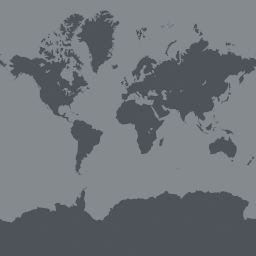Venezuela harbours a unique and rich array of marine biodiversity. The myriad of systems under the influence of the Orinoco river, seasonal upwellings, tropical wetlands and offshore islands occupy a vast extension of the southern Caribbean. For over 60 years, around 10 institutions in the country, some of the first focused on marine science in Latin America, have consistently produced a wealth of information about Venezuela’s marine biodiversity in the form of specimen collections, unpublished sampled data, and research theses through the work of hundreds of researchers and students. Sadly, this information is in peril of being lost forever, as the institutions’ libraries and premises have been looted repeatedly with hundreds of records, specimens and historical data being stolen, destroyed or burned for fuel.
This project proposes to digitize this information as the first step to creating a rich suite of datasets of biodiversity records with emphasis in marine protected areas for the country. We expect this project to prevent the loss of irreplaceable biodiversity data, but also to start filling gaps about the distribution and status of marine biodiversity in Venezuela. This will facilitate the estimation of national and regional biodiversity indicators and the progress towards internationally agreed targets.
A key part of the project is building capacity among researchers and practitioners in the country to secure that data mobilization—integrating standards allowing interoperability with regional and global databases and repositories—continues beyond this project. This is a crucial first step to increase the resilience of Venezuela’s knowledge base on marine science and biodiversity. With the support of the Caribbean OBIS node, we estimate that at least 27 more individual datasets for fishes, zooplankton, phytoplankton, corals, molluscs and crustaceans will be produced by researchers as part of this initiative by the end of 2022.
Project progress
Six months since the project’s implementation started, the project achieved to publish 27,024 records of marine species in 36 datasets, this represents 33 % more of the total number of datasets planned for the project to deliver.
Training was conducted for 10 people on the use of Darwin Core Standards to mobilise Biodiversity data using GBIF and OBIS and providing basic introductory knowledge to 20 participants through a workshop held in December 2021. Two more workshops are planned to be held, one in April, a webinar to promote adoption of DwC standards and use of OBIS/GBIF to showcase the datasets that have been published, and one in August 2022.
The publication of a research article from the datasets produced in the project is expected to be completed by June 2022.
Main communications and visibility of the Project has been shared by means of CaribeSur’s Blog and social media, Twitter and Instagram.
The project has had a positive impact on all of the participating institutions and researchers, strengthening collaboration and creating a network among participating institutions through the establishment of an interinstitutional working group that has acquired training capacity in data mobilization. An outcome of the project is the production of a datapaper as a result of the collaborative work from all of the researchers involved. It's manuscript has been approved and will be published in an specialized journal (Biodiversity Data Journal).




